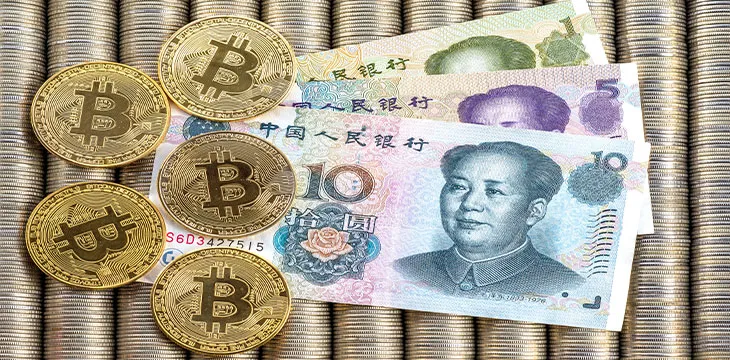|
Getting your Trinity Audio player ready...
|
At the same time that China is putting pressure on the crypto industry, peer-to-peer (P2P) cryptocurrency lending continues to gain in popularity. According to local media outlet Sohu, more and more crypto lending platforms are popping up, but their livelihood could ultimately be cut short because of tightened regulations in the country.
One source close to the activity is a crypto veteran, Zhang Le. He told the media outlet, “At present, most of the market only recognizes two major currencies, Bitcoin and Ethereum. This business is currently earning interest.” Another individual, Xu Lizhen, pointed out that those lending crypto are generally long-term holders who have no interest in trading on the markets. He added, “This is just the need. When the currency is low, people who are speculating in the currency will definitely not be willing to sell the coins. Once they are short of money, they must find such platforms. The demand has formed this market.”
Sohu indicated that there could be more than 20 startups now involved in crypto lending in the country. Xu further stated, “The [cryptocurrency] industry is called to stop, the market has not stopped.” He said the lending solutions give holders the ability to “solve [their] liquidity problems in the down phase,” adding that lenders are willing to accept large “pledges [of] BTC [and] ETH,” and that the “cost is beautiful.”
The Shanghai Institute of Advanced Finance’s Hu Jie asserted, “Currently, digital currency mortgage lending business mostly occurs only in the currency circle. One party has funds (or digital currency) to seek lending, and the other party lacks funds (or digital currency) to borrow. Digital assets can be used for mortgages, and such private trading behaviors can be allowed.” He stressed that the businesses need to ensure that they follow regulations, asserting, “If an entity specializes in this business and engages in this type of lending and financial management, it needs to have corresponding qualifications and conditions. Otherwise, it may be suspected of illegal lending and illegal business.”
Xiao Wei, a Chinese Internet finance lawyer, sees tremendous value in the offerings, but cautions against questionable adoption practices. He said, “This is a gray game. The essence is to solve the problem of asset liquidity or direct fundraising. But even in the gray industry, we must not adopt a market manipulation method. This will only bring the 266th fraud of the criminal law to our future…”
It’s no secret that Chinese authorities, in particular, are not overly enthused by the introduction of cryptocurrency. While the country has not placed an outright ban on digital currency – and has shown support for blockchain technology – it has extremely strict policies in place to help control the industry. Cryptocurrency lending may be on the rise, but it can only succeed over the long term if the players adhere to the country’s financial rules and regulations.

 07-13-2025
07-13-2025 





